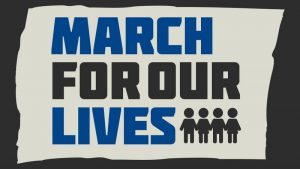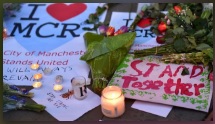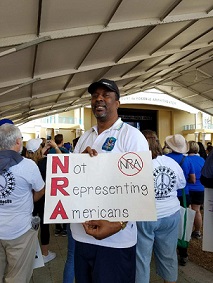 Today is the 11th day of the 11th month, November. For the last 100 years, this date has been commemorated and celebrated for marking the end of the Great War, later to be called World War I. This day has a lot of different names:
Today is the 11th day of the 11th month, November. For the last 100 years, this date has been commemorated and celebrated for marking the end of the Great War, later to be called World War I. This day has a lot of different names:
- Armistice Day
- Remembrance Day
- Veterans Day (in the US)
This was one of the biggest moments in the entire 20th century. The cease-fire came into effect at 11am – the 11th hour. See the encyclopedic details here:
Title: Armistice of 11 November 1918
The Armistice of 11 November 1918 was the armistice that ended fighting on land, sea and air in World War I between the Allies and their opponent, Germany. Previous armistices had eliminated Bulgaria, the Ottoman Empire and the Austro-Hungarian Empire from the war. Also known as the Armistice of Compiègne from the place where it was signed, it came into force at 11 a.m. Paris time on 11 November 1918 (“the eleventh hour of the eleventh day of the eleventh month”) and marked a victory for the Allies and a defeat for Germany, although not formally a surrender.The actual terms, largely written by the Allied Supreme Commander, Marshal Ferdinand Foch, included the cessation of hostilities, the withdrawal of German forces to behind the Rhine, Allied occupation of the Rhineland and bridgeheads further east, the preservation of infrastructure, the surrender of aircraft, warships, and military materiel, the release of Allied prisoners of war and interned civilians, eventual reparations, no release of German prisoners and no relaxation of the naval blockade of Germany.
See the remaining of the article here …
https://en.m.wikipedia.org/wiki/Armistice_of_11_November_1918 retrieved November 11, 2018.
This is more than just raw history. There is a lot of relevance for the Caribbean. At the time of this war (1914 – 1918) most of the 30 member-states of the political Caribbean were all under the domain of the following countries that participated in the World War:
- Great Britain (owned 18 islands and coastal territories including today’s Belize & Guyana)
- Denmark (owned the US Virgin Islands until 1917)
- France (owned 4 islands)
- Netherlands (owned 6 islands and Suriname)
- United States of America (owned Puerto Rico and Protectorate of Cuba)
- (Haiti and the Dominican Republic were independent and inconsequential to this war).
In fact, at the 100 year anniversary of the launch of the war, this commentary published a detail assessment on relevance to our modern life and lessons learned – 8 specific theses. Here is an Encore of that previous blog-commentary here-now:
===============================================
Go Lean Commentary – A Lesson in History: 100 Years Ago Today – World War I
The dominoes began to fall 100 years ago today.
Going backwards: The Caribbean is at the precipice of dysfunction due to a global financial crisis; the crisis is a by-product of an inter-connected world; the global unified economic systems (Bretton-Woods Accords [b]) and disbanding of the colonies of the Great Powers emerged for the rebuilding after World War II. Consequently, Word War II was a direct response to the unsatisfactory settlements from World War I and economic dysfunctions during the period between the World Wars. The first domino was therefore June 28, 1914.
 On this date 100 years ago, Archduke Franz Ferdinand of Austria, heir presumptive to the Austro-Hungarian throne, and his wife, Sophie, Duchess of Hohenberg, were shot dead in Sarajevo by Serbian assassins. The political objective of the assassination was to break off Austria-Hungary’s south-Slav provinces so they could be combined into a Yugoslavia. The assassination led directly to the First World War when Austria-Hungary subsequently issued an ultimatum against Serbia, which was partially rejected. Austria-Hungary then declared war, marking the outbreak of the war. [a]
On this date 100 years ago, Archduke Franz Ferdinand of Austria, heir presumptive to the Austro-Hungarian throne, and his wife, Sophie, Duchess of Hohenberg, were shot dead in Sarajevo by Serbian assassins. The political objective of the assassination was to break off Austria-Hungary’s south-Slav provinces so they could be combined into a Yugoslavia. The assassination led directly to the First World War when Austria-Hungary subsequently issued an ultimatum against Serbia, which was partially rejected. Austria-Hungary then declared war, marking the outbreak of the war. [a]
Multilateral military alliances abounded in that day among the Great Powers: Austria-Hungary with Germany (Triple Alliance of 1882) and Serbia with Russia and France (Triple Entente of 1907) and Britain. When war ensued later in August 1914, these were the sides. Many other military treaties were triggered thereby engaging empires/countries like Ottoman-Turks, Portugal, Japan and Italy, (The United States joined in 1917 allied with Britain). The resulting conflict was dubbed the Great War until subsequently rebranded World War I.
The review of the historic events of this day 100 years ago is more than just an academic discussion, the book Go Lean…Caribbean aspires to economic principles that dictate that “consequences of choices lie in the future”. The book serves as a roadmap for the introduction and implementation of the technocratic Caribbean Union Trade Federation (CU). This confederation effort aligns many former colonies of the same Great Powers that waged WW I; like Great Britain or the United Kingdom (UK) for example. The British Dominion experienced dire consequences and suffered greatly as a result of this war. In 1914 The British Dominion controlled over 25% of the world’s population; today the UK wields little political, military or economic power, including that of the Caribbean.
The people of the Caribbean understand societal decline and dysfunction all too well.
What have we learned in the 100 years since the events of June 28, 1914? How will these lessons help us today?
- Minority Equalization – Bullying and terrorism must be mitigated at the earliest possible opportunity – the foregoing photo depicts the oppression the minority Balkan communities perceived in the Austria-Hungarian Empire. As a minority group they felt bullied in their own country; their Slavic culture and language set them apart, and their religious adherence led to even more dissension (Austria-Hungary: Catholic/Lutheran; Serbia: Eastern Orthodox and Bosnia- Herzegovina: Muslim) There were terrorist activities for decades before in the quest for independence. In the past 100 years, this same modus operandi has been repeated in countless locales around the world. The CU security pact must defend against regional threats, including domestic terrorism. This includes gangs and their junior counterparts, bullies. The CU plans for community messaging in the campaign to mitigate bullying.
- Reconciliation of issues are not optional, more conflict will emerge otherwise – The issues that wedged the people of the Balkans were not resolved in World War I. More dissensions continued leading to World War II, and continued during the Cold War while most of the Balkans were under Soviets control. When the Soviet Union collapsed in 1991, civil war and ethnic cleansings proceeded in the Balkans. Their issues/differences had not been reconciled. A common practice after WW I & WW II was the prosecution of war crimes. But in South Africa an alternative justice approach was adopted, that of Truth & Reconciliation Commissions (TRC). These have become more successful as the emphasis is less on revenge and more on justice normalization. Many other countries have instituted similar TRC models. The CU plans for the TRC model for dealing with a lot of latent issues in the last Caribbean century (i.e. Cuba, Haiti, Dominican Republic, etc).
- Self-determination of local currencies – in planning for postwar reconstruction, U.S. representatives with their British counterparts studied what had been lacking between the two world wars: a system of international payments that would allow trade to be conducted without fear of sudden currency depreciation or wild fluctuations in exchange rates—ailments that had nearly paralyzed world capitalism during the Great Depression. There is a multiplier associated with the currency in the money supply. Therefore the communities of the Caribbean must embrace its own currency, the Caribbean Dollar (managed by a technocratic Caribbean Central Bank), thereby bringing local benefits from local multipliers.
- Security assurances must be enabled to complement economics objectives – A lot of dissension has resulted when economic engines become imperiled due to security conflicts. The instability then causes more economic dysfunction, which results in even more security threats – a downward spiral. The CU/Go Lean posits that security apparatus must be aligned with all economic empowerments. This is weaved throughout the roadmap.
- Negotiate as partners not competitors – The end of World War I immediately set-up ripe conditions for WW II, because of the harsh terms in the Peace Treaties. The CU maintains that, negotiation is an art and a science. More can be accomplished by treating a negotiating counterpart as a partner, rather than not an adversary. (See VIDEO below).
- Cooperatives and sharing schemes lighten burdens among neighbors – The Balkan conflict of 1914 resulted in a World War because of cooperative treaties with aligning nations. Despite this bad outcome, the practice of cooperatives and sharing still has more upside than downside. The CU will employ cooperatives and sharing schemes for limited scopes within the prime directives of optimizing the economic, security and governing engines.
- Promote opportunities for the Pursuit of Happiness – A lot of terrorist activities are executed by “suicide” agents (i.e. suicide bombers). The Go Lean roadmap posits the when the following three fundamentals are in place, the risks of suicide is minimal: 1. something to do, 2. someone to love, 3. something to hope for. These are the things a man (or woman) needs to be happy.
- Consider the Greater Good – Complying with this principle would have prevented a lot of conflict in the past century. The philosophy is directly quoted as: “It is the greatest good to the greatest number of people which is the measure of right and wrong”. The CU/Go Lean roadmap calls for a number of measures that strike directly at the Greater Good mandate: accountable justice institutions, economic empowerment for rich and poor, strategic education initiatives, proactive health/wellness, etc.
The related subjects of economic, security and governing dysfunction have been a frequent topic for blogging by the Go Lean promoters, as sampled here:
| https://goleancaribbean.com/blog/?p=1433 | Caribbean loses over 70% of tertiary educated citizens to the brain drain |
| https://goleancaribbean.com/blog/?p=1309 | 5 Steps of a Bubble |
| https://goleancaribbean.com/blog/?p=1014 | All is not well in the sunny Caribbean |
| https://goleancaribbean.com/blog/?p=816 | The Future of Caribbean Integration and CariCom |
| https://goleancaribbean.com/blog/?p=789 | America’s War on the Caribbean |
| https://goleancaribbean.com/blog/?p=782 | Open the Time Capsule: The Great Recession of 2008 |
| https://goleancaribbean.com/blog/?p=623 | Only at the precipice, do they change |
| https://goleancaribbean.com/blog/?p=599 | Ailing Puerto Rico open to radical economic fixes |
| https://goleancaribbean.com/blog/?p=467 | Barbados Central Bank records $3.7m loss in 2013 |
| https://goleancaribbean.com/blog/?p=451 | CariCom Chairman to deliver address on slavery/colonization reparations |
| https://goleancaribbean.com/blog/?p=353 | Book Review: ‘Wrong – Nine Economic Policy Disasters and What We Can Learn…’ |
The purpose of the Go Lean roadmap is to turn-around the downward trends in the Caribbean today, to reverse course and elevate Caribbean society. The CU, applying lessons from the last 100 years, has prime directives proclaimed as follows:
- Optimization of the economic engines in order to grow the regional economy to $800 Billion & create 2.2 million new jobs.
- Establishment of a security apparatus to protect the resultant economic engines.
- Improve Caribbean governance to support these engines.
The Go Lean book details a series of assessments, community ethos, strategies, tactics, implementations and advocacies to empower all the factions in the Caribbean region:
| Community Ethos – Economic Systems Influence Choices & Incentives | Page 21 |
| Community Ethos – Consequences of Choices Lie in the Future | Page 21 |
| Community Ethos – Money Multiplier – Control of Local/Regional Currency | Page 22 |
| Community Ethos – Anti-Bullying and Mitigation | Page 23 |
| Community Ethos – Intelligence Gathering | Page 23 |
| Community Ethos – “Crap” Happens | Page 23 |
| Community Ethos – Minority Equalization | Page 24 |
| Community Ethos – Ways to Impact the Future | Page 26 |
| Community Ethos – Ways to Improve Negotiations | Page 32 |
| Community Ethos – Ways to Manage Reconciliations | Page 34 |
| Community Ethos – Ways to Improve Sharing | Page 35 |
| Community Ethos – Ways to Promote Happiness | Page 36 |
| Community Ethos – Ways to Impact the Greater Good | Page 37 |
| Strategy – Vision – Integrate Region into a Single Market Economy | Page 45 |
| Strategy – Agents of Change – Globalization | Page 57 |
| Tactical – Separation of Powers – Department of Homeland Security | Page 75 |
| Tactical – Separation of Powers – Department of Justice | Page 77 |
| Implementation – Assemble Existing Super-national Institutions | Page 96 |
| Implementation – Caribbean Central Bank (CCB) Cooperative | Page 96 |
| Implementation – Ways to Pay for Change | Page 101 |
| Implementation – Foreign Policy Initiatives at Start-up | Page 102 |
| Implementation – Security Initiatives at Start-up | Page 103 |
| Implementation – Ways to Deliver | Page 109 |
| Implementation – Ways to Promote Independence | Page 120 |
| Planning – Ways to Ways to Model the EU | Page 130 |
| Planning – Ways to Make the Caribbean Better | Page 131 |
| Planning – Ways to Improve Failed-State Indices | Page 134 |
| Planning – Lessons from East Germany | Page 139 |
| Advocacy – Ways to Grow the Economy | Page 151 |
| Advocacy – Ways to Create Jobs | Page 152 |
| Advocacy – Ways to Better Manage the Social Contract | Page 170 |
| Advocacy – Ways to Foster Cooperatives | Page 176 |
| Advocacy – Ways to Impact Justice | Page 177 |
| Advocacy – Ways to Improve Homeland Security | Page 180 |
| Advocacy – Ways to Mitigate Terrorism | Page 181 |
| Advocacy – Ways to Improve Intelligence | Page 182 |
| Advocacy – Banking Reforms – Caribbean Dollar | Page 199 |
| Advocacy – Ways to Protect Human Rights | Page 220 |
| Advocacy – Battles in the War on Poverty | Page 222 |
| Advocacy – Ways to Impact British Territories | Page 245 |
The year 1914 is identified as a watershed year in the history of mankind. (There are even religious teachings that identify this year as the beginning of the Bible’s prophesied Last Days). No doubt there was a crisis, and it was wasted, even after losing 19 million people in the ensuing military conflict. The result was a 2nd World War that slaughtered 60 million more. Still all the divisions and animosities created during those conflicts forged even more conflicts (think: Middle East, Korea and Vietnam). In total, about 100 million people died in wars of the 20th Century.
See Comedian Bill Maher Commentary in the following VIDEO:
VIDEO – Real Time With Bill Maher: Sunni and Share (HBO) –
https://youtu.be/Jz0YWIfBLa4
Real Time with Bill Maher
Published on Jul 1, 2014 – Bill Maher delivers his “New Rules” editorial on June 27, 2014.
- Category: Entertainment
Now is the time for all of the Caribbean to learn the lessons from the last 100 years, and not waste our current crises. The book Go Lean … Caribbean posits that the Caribbean is in a serious crisis, but asserts that this crisis would be a terrible thing to waste. The people and governing institutions of the region are hereby urged to lean-in for the empowerments described in the book Go Lean … Caribbean.
This is a big deal for the region, the same way 1914 was a big year for our planet. While the planet is out-of-scope for this roadmap, a Caribbean neighborhood optimization is realistic and plausible. We can all work to make our homeland a better place to live, work, and play.
Download the free e-Book of Go Lean … Caribbean – now!
—————–
Referenced Sources:
a. http://en.wikipedia.org/wiki/Assassination_of_Archduke_Franz_Ferdinand_of_Austria; retrieved June 28, 2014
b. http://en.wikipedia.org/wiki/Bretton_Woods_system; retrieved June 28, 2014



 Do you know what SOS stands for?
Do you know what SOS stands for?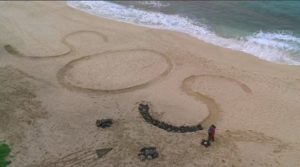


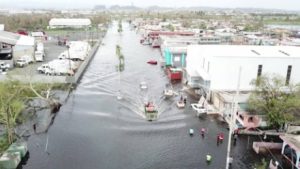
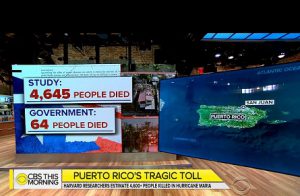
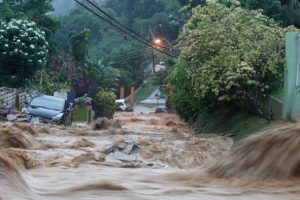
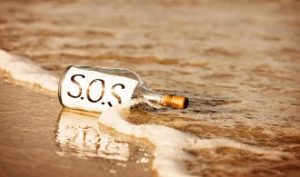 So when a Caribbean community puts out an SOS –
So when a Caribbean community puts out an SOS –  The world’s leading climate scientists have warned there is only a dozen years for global warming to be kept to a maximum of 1.5C, beyond which even half a degree will significantly worsen the risks of drought, floods, extreme heat and poverty for hundreds of millions of people.
The world’s leading climate scientists have warned there is only a dozen years for global warming to be kept to a maximum of 1.5C, beyond which even half a degree will significantly worsen the risks of drought, floods, extreme heat and poverty for hundreds of millions of people.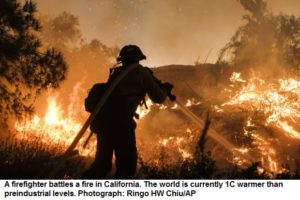

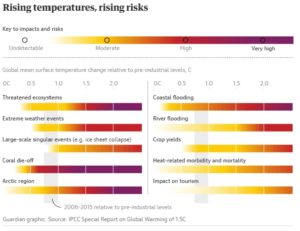

 “I hope this can change the world,” said Jiang Kejun of China’s semi-governmental Energy Research Institute, who is one of the authors. “Two years ago, even I didn’t believe 1.5C was possible but when I look at the options I have confidence it can be done. I want to use this report to do something big in China.”
“I hope this can change the world,” said Jiang Kejun of China’s semi-governmental Energy Research Institute, who is one of the authors. “Two years ago, even I didn’t believe 1.5C was possible but when I look at the options I have confidence it can be done. I want to use this report to do something big in China.”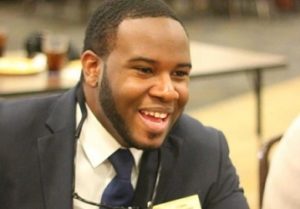
 This sad story is the Caribbean version of the fable of the
This sad story is the Caribbean version of the fable of the 

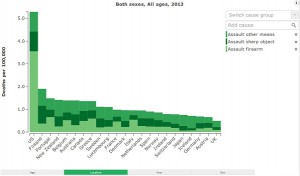


 So where do all the used plastics – and Styrofoam – go?
So where do all the used plastics – and Styrofoam – go? August 13th, 2018 – Saint Lucia plans to phase-out Styrofoam food service containers and plastics, both plates and cups, beginning December 1, 2018, with a total ban on their importation before the end of next year.
August 13th, 2018 – Saint Lucia plans to phase-out Styrofoam food service containers and plastics, both plates and cups, beginning December 1, 2018, with a total ban on their importation before the end of next year.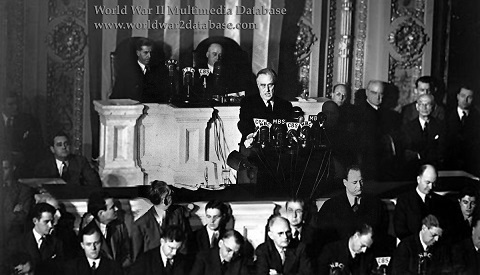




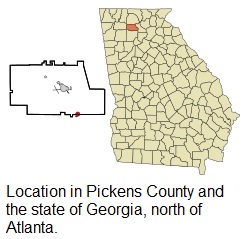 The small city of Nelson, [Georgia], agreed Thursday to revise an ordinance passed earlier this year that required every household to own a gun.
The small city of Nelson, [Georgia], agreed Thursday to revise an ordinance passed earlier this year that required every household to own a gun.